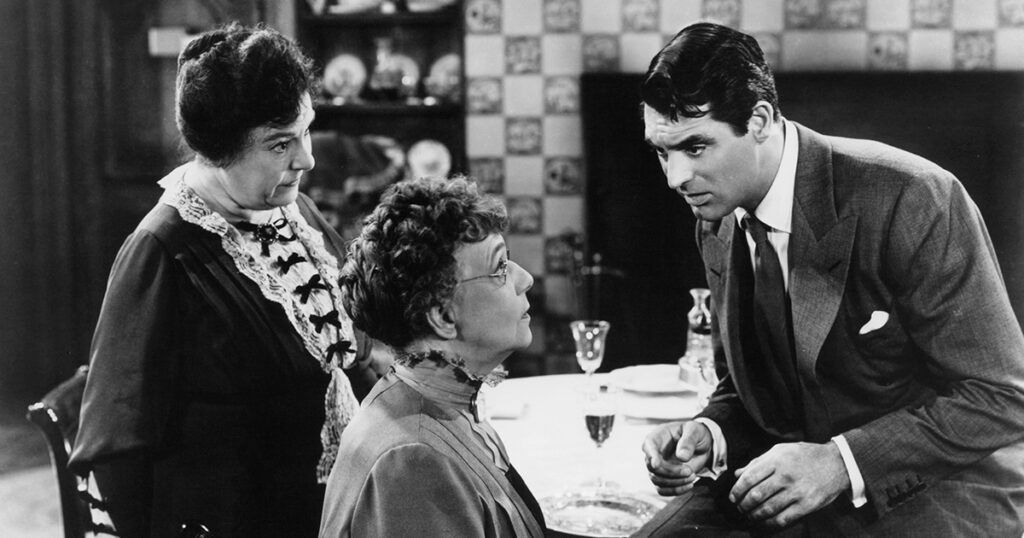[7]
Cary Grant leads a wacky ensemble for director Frank Capra’s film adaptation of Joseph Kesselring’s crowd-pleasing stage play, Arsenic and Old Lace. Grant plays Mortimer Brewster, a newlywed stopping by the Brooklyn home of the two elderly aunts who raised him (Josephine Hull and Jean Adair) before he and his wife (Priscilla Lane) hop in a taxi and head off for their honeymoon. The night takes a hard turn when he discovers a dead body in his aunt’s window seat and learns there are twelve other bodies buried in the basement. Matters are further complicated when Mortimer’s estranged, criminal brother (Raymond Massey) and his henchman (Peter Lorre) show up to hide a dead body of their own.
I love the first third of Arsenic and Old Lace, while the story’s engine revs up and we get to know its cast of quirky characters. You’ll never see Cary Grant in a more manic mode than here, trying to mask his unbridled frustration while juggling his aunts, his wife, his crazy cousin (John Alexander) who thinks he’s Teddy Roosevelt, his murderous brother, and a policeman (Jack Carson) who’s too busy telling Grant about the novel he’s writing to notice the criminal conduct at hand. At times, Grant is driven to look at us through the camera lens in disbelief. A little of this goes a long way for me. I think he’s funnier towards the end of the film, when he’s given up maintaining any charades and becomes nonchalant about craziness around him.
The last two-thirds of the film — while still entertaining — wears on me a bit. The film is simply too madcap and unmoored from reality to sustain a two-hour runtime. But there’s still a lot to love and enjoy here. All of the supporting performers are terrific, although Raymond Massey seems to take the material far more seriously than anyone else. It would have been better if Frankenstein‘s Boris Karloff, who played the part on stage, was cast in the film, but he reportedly asked for too much money. The many references to Karloff written into the script are pretty humorous, though. Sol Polito’s shadowy cinematography is often striking, and there are indeed a good handful of timeless laughs sprinkled throughout the script. My favorite is perhaps the most famous line in the movie, when Grant expresses concern to his new bride about whether he’ll pass his family’s eccentricity onto their future children: “You see, insanity runs in my family. It practically gallops.”

